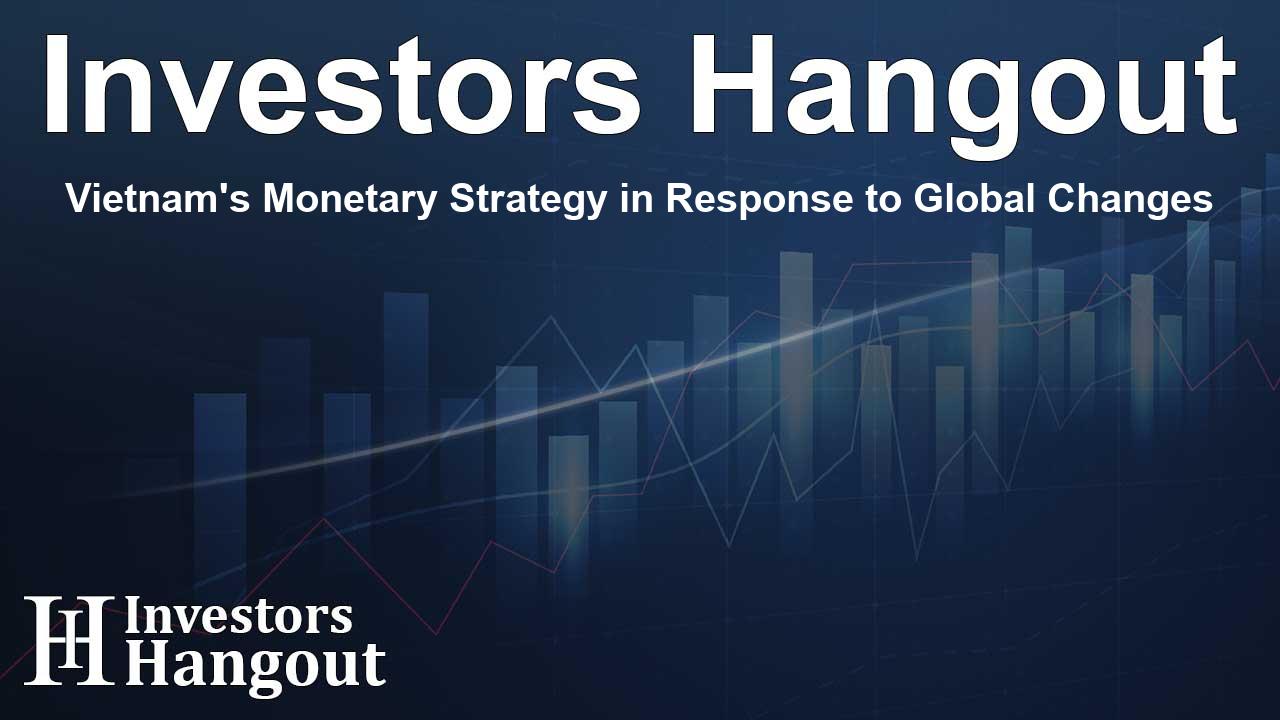Vietnam's Monetary Strategy in Response to Global Changes

Vietnam's Central Bank Adopts Flexible Monetary Policy
HANOI - The central bank of Vietnam has announced its commitment to maintaining a flexible monetary policy aimed at controlling inflation. This strategy includes monitoring potential economic shifts stemming from the policies of the incoming U.S. administration led by President-elect Donald Trump.
Addressing Economic Challenges
Despite signs of recovery, certain sectors in Vietnam are facing challenges. Bad debts are rising, and both the bond and stock markets are experiencing difficulties, as noted by deputy central bank governor Dao Minh Tu during a recent press briefing. The property sector is also navigating through hurdles amid attempts at recovery.
Growth Amidst Challenges
Vietnam's economy, driven largely by manufacturing, showed impressive growth. Recent data revealed a 7.09% expansion last year, with the economy reaching $476.3 billion. This growth outpaced the previous year's rate of 5.05%, fueled by strong exports and significant foreign investment inflows.
Banking Sector Stability
However, despite this growth, economists caution that weaknesses persist, particularly within the banking and real estate sectors. Credit growth has lagged behind targets, raising concerns for future expansions. Fortunately, Tu indicated that the central bank has maintained control over non-performing loans, with commercial banks operating under stable conditions. By the end of last year, bank lending saw a 15.08% increase, and the central bank aims for a 16% credit growth rate this year.
Responding to Troubled Lenders
The central bank is actively managing issues associated with a struggling lender identified as Saigon Joint Stock Commercial Bank (SCB). There are plans to complete the takeover of two weak banks by private lenders before the upcoming Lunar New Year, with additional mergers of underperforming banks on the horizon.
Unprecedented Measures Taken
Last year, the State Bank of Vietnam undertook unprecedented measures to rescue SCB after it became a focal point of a significant financial scandal. In a bold move to prevent its collapse, the central bank reportedly injected $24 billion in special loans.
Monitoring Global Economic Policies
As the world watches the policies of the upcoming Trump administration, Pham Chi Quang, head of the central bank's monetary policy department, emphasized the importance of closely monitoring these developments. The United States represents a crucial market for Vietnam's exports, highlighting the potential impact of any new tariffs Trump has pledged to impose.
Foreign Exchange Considerations
In light of global economic factors, Quang affirmed that Vietnam’s foreign exchange policy would remain flexible. Efforts will focus on stabilizing interest rates and the exchange rate amidst the anticipated difficulties that could arise in the coming years.
Conclusion
Currently, the Vietnamese dong is nearing its low points against the U.S. dollar, presenting challenges that the central bank aims to navigate carefully. Through these efforts, Vietnam seeks to stabilize its economy and respond effectively to both internal and external pressures.
Frequently Asked Questions
What is the current economic situation in Vietnam?
Vietnam's economy has shown growth, but challenges remain in the banking and real estate sectors, with rising bad debts and below-target credit growth.
How does the Vietnamese central bank plan to control inflation?
The central bank aims to maintain a flexible monetary policy while closely monitoring global economic shifts, particularly from the U.S.
What sectors are facing difficulties in Vietnam?
The bond and stock markets, along with the property sector, are currently facing various challenges despite signs of recovery.
How is the central bank handling troubled financial institutions?
The bank is actively managing troubled lenders and has plans for mergers and takeovers to stabilize the banking sector.
What is the significance of the U.S. market for Vietnam?
The United States is a top destination for Vietnam's exports, making it critical for the country to adapt to any changes in U.S. trade policies.
About The Author
Contact Riley Hayes privately here. Or send an email with ATTN: Riley Hayes as the subject to contact@investorshangout.com.
About Investors Hangout
Investors Hangout is a leading online stock forum for financial discussion and learning, offering a wide range of free tools and resources. It draws in traders of all levels, who exchange market knowledge, investigate trading tactics, and keep an eye on industry developments in real time. Featuring financial articles, stock message boards, quotes, charts, company profiles, and live news updates. Through cooperative learning and a wealth of informational resources, it helps users from novices creating their first portfolios to experts honing their techniques. Join Investors Hangout today: https://investorshangout.com/
The content of this article is based on factual, publicly available information and does not represent legal, financial, or investment advice. Investors Hangout does not offer financial advice, and the author is not a licensed financial advisor. Consult a qualified advisor before making any financial or investment decisions based on this article. This article should not be considered advice to purchase, sell, or hold any securities or other investments. If any of the material provided here is inaccurate, please contact us for corrections.
